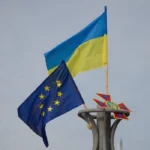The European Parliament has initiated an investigation into Maria Arena, a Belgian Member of the European Parliament (MEP), amidst allegations of pro-UAE activities. The investigation stems from a report by Forbidden Stories, an investigative journalism organization, which unveiled Arena’s receipt of substantial sums from a think tank financially supported by the United Arab Emirates (UAE) government.
The investigative spotlight on Arena further intensified as her residence was subjected to a police raid as part of the Qatargate investigation. This corruption scandal has centered around the European Parliament, implicating several lawmakers from Arena’s center-left Socialists & Democrats grouping. Surprisingly, Arena had not been charged or questioned by Belgian prosecutors, even though she was mentioned in an arrest warrant earlier this year, which listed a group of MEPs allegedly involved in elevating Qatar’s influence in Brussels. Arena vehemently denies any involvement in the scandal and has continued to fulfill her duties as an MEP since the controversy erupted last December.
This investigation into Maria Arena forms part of a wider crackdown on foreign interference within the European Parliament. In recent years, there have been numerous high-profile cases where MEPs were accused of lobbying for foreign governments, including Russia, China, and Qatar.
Recognizing the gravity of the issue, the European Parliament has taken measures to address foreign interference. It has adopted a code of conduct for MEPs and established a new transparency register for lobbyists. Nonetheless, the problem persists, and the European Parliament remains committed to examining allegations of pro-UAE activities among its members.
In August 2023, Belgian authorities discovered €280,000 ($304,326) in cash while conducting a search at the residence of Arena’s son, as part of an investigation into corruption within the European Parliament.
Specific instances of Maria Arena’s pro-UAE activities have come to light:
1. In 2018, Arena cast her vote in favor of a resolution that commended the UAE’s human rights record, a move heavily criticized by human rights organizations accusing the UAE of whitewashing its abuses.
2. In 2019, Arena held a meeting with a UAE government official to discuss enhancing relations between the UAE and the European Union. This meeting remained undisclosed to the public until the Forbidden Stories report exposed it.
3. In 2020, Arena was granted the “UAE Golden Visa” by the UAE government, a unique visa permitting foreigners to live and work in the UAE without the need for a sponsor.
The allegations against Maria Arena are grave, and if substantiated, could lead to her expulsion from the European Parliament. The investigation’s outcome is eagerly anticipated by those who are concerned about the growing influence of foreign governments in European politics.






